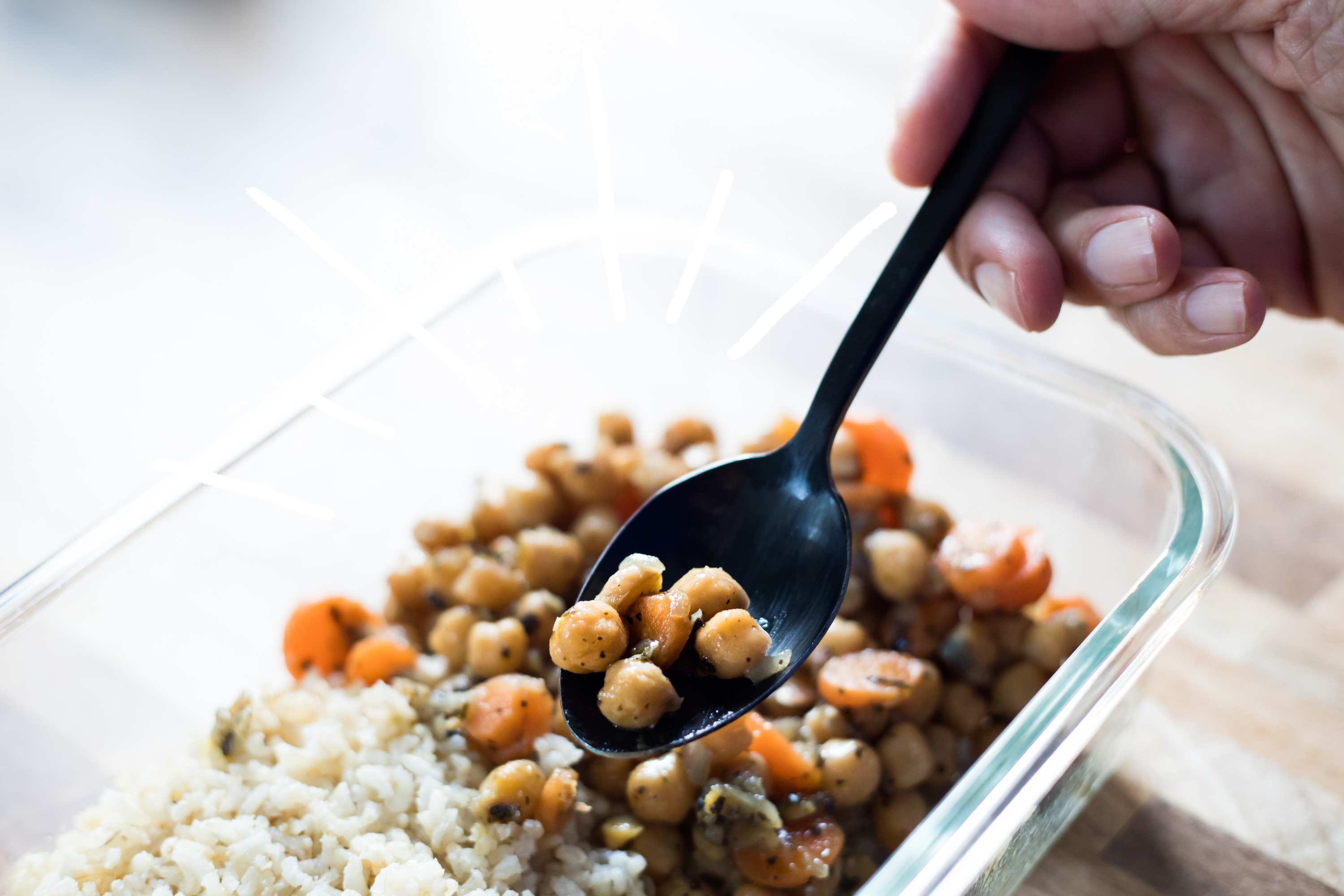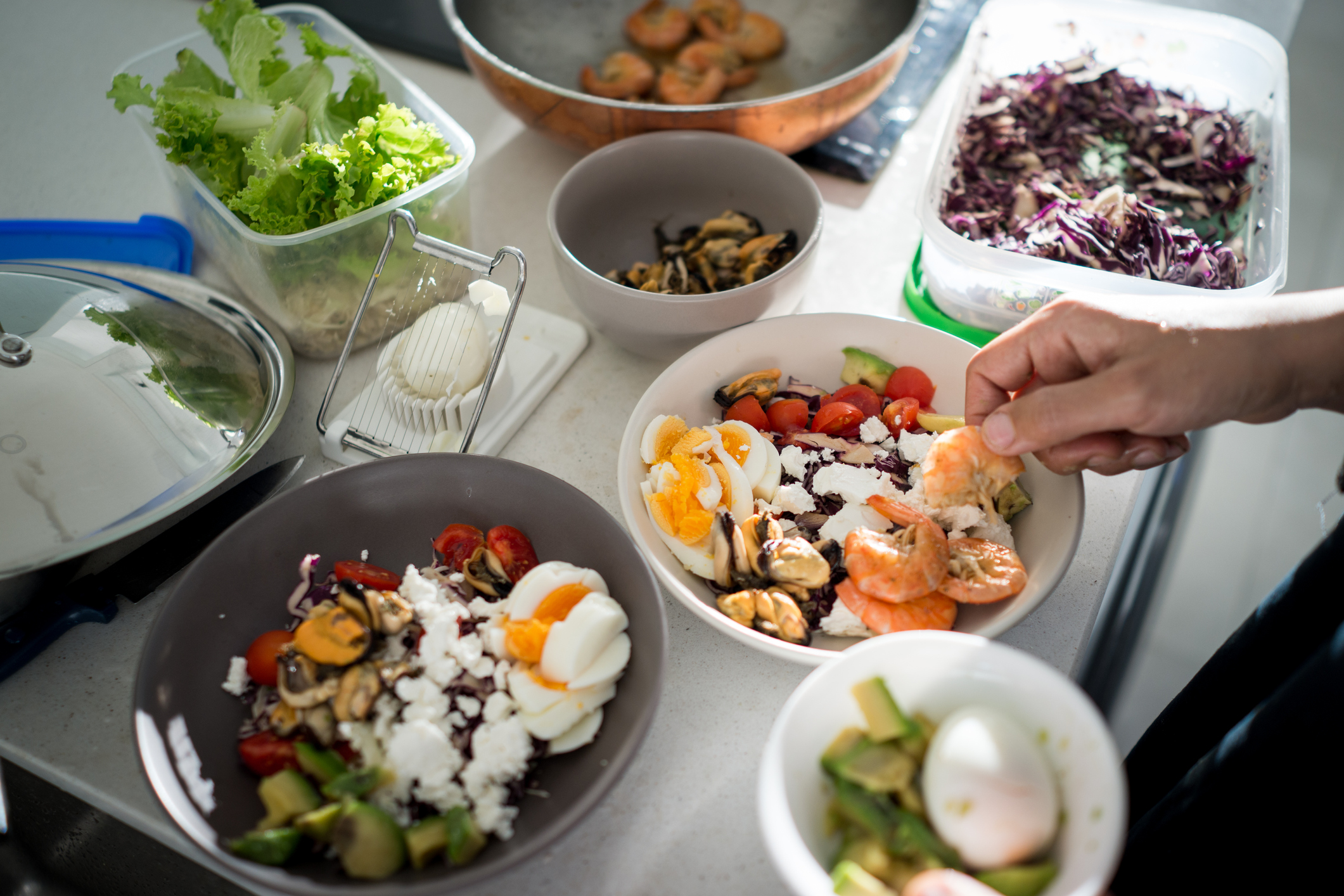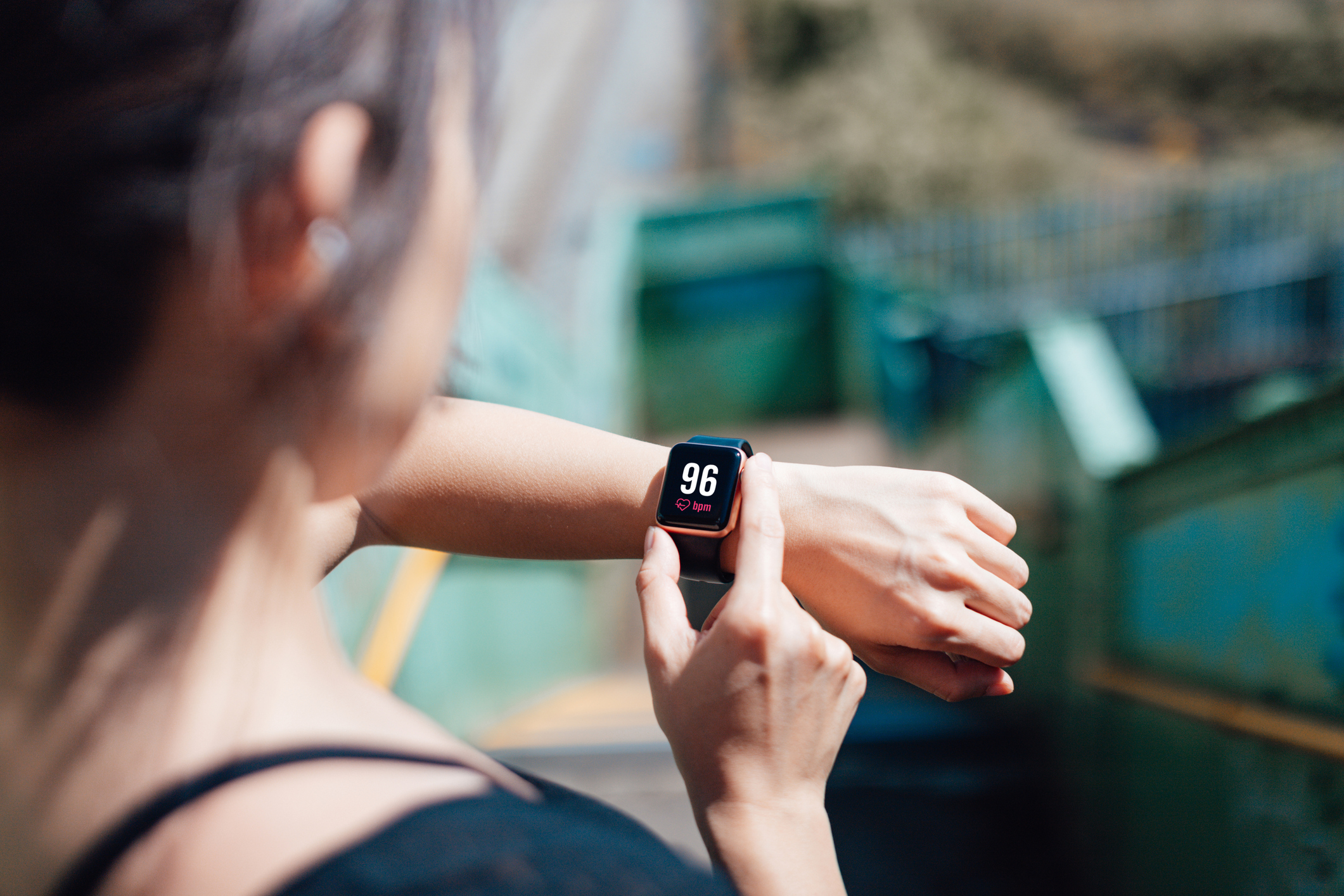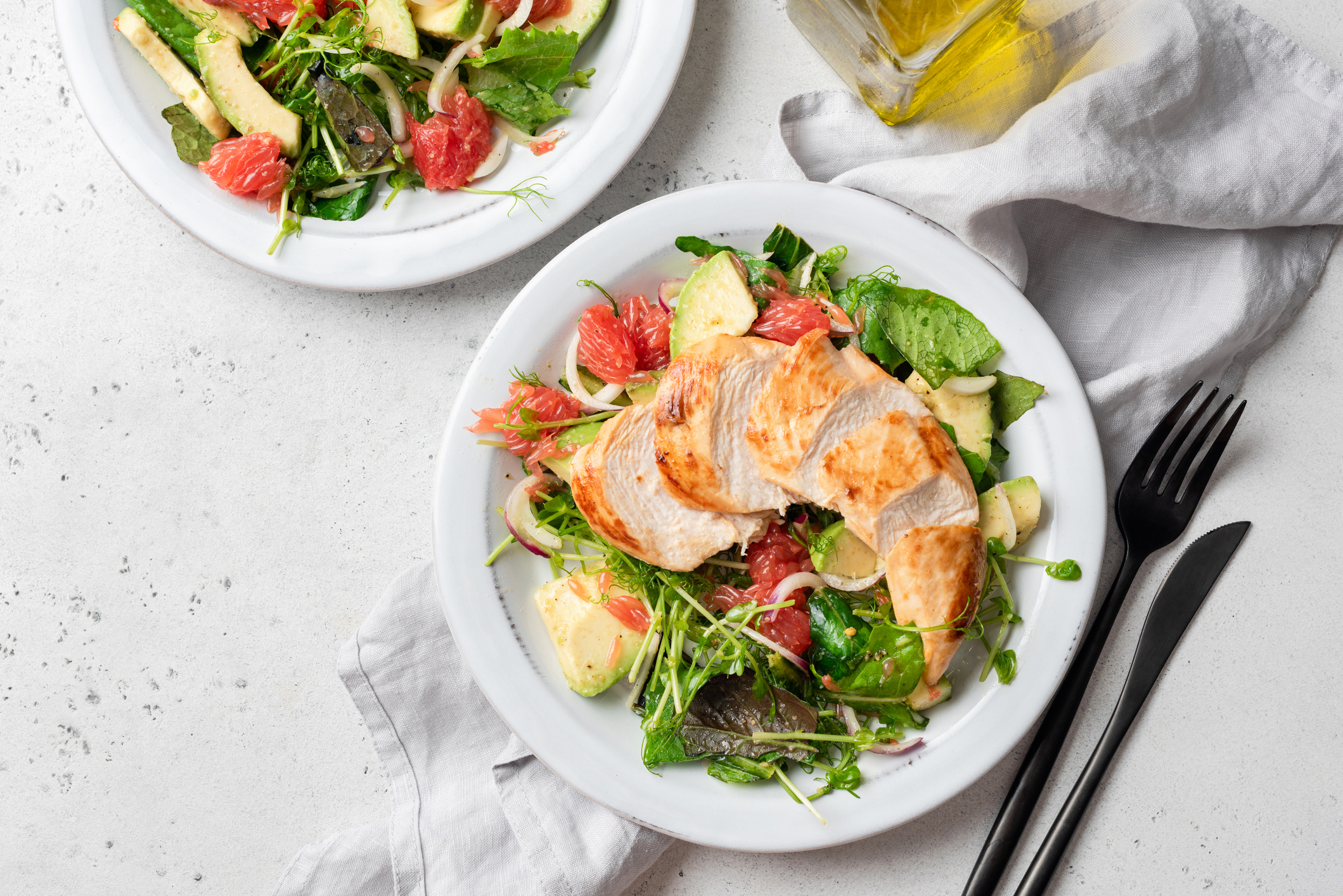High protein diet for weight loss
This high-protein diet will fill you up quickly, so you'll consume fewer calories throughout the day - perfect for meat lovers, fast weight loss and it will boost your energy too


A high protein diet is one of the expert-approved ways to lose weight and change your eating habits for the better.
Often cited as one of the only diets that work to change eating behaviour in the long-term, the high protein diet is a popular plan for those who want to lose weight without diet or exercise transformations. Similar to reverse dieting, it doesn't traditionally involve any cutting calories or any restricted meals, just making different choices about the food you eat alongside the treats you love. But no one should feel pressured to lose weight and the high protein diet has so many other benefits aside from weight loss.
So what's the high protein diet all about? Here's what you need to know to get started, from the foods you should eat to what nutritionists have to say about it.
What is a high protein diet?
A high protein diet for weight loss is based around foods that typically have a high quantity of protein and low amounts of carbohydrate.
"The average daily intakes of protein in the UK are 76g for adults aged 19 - 64 years, and 67g for adults aged over 65. Protein produces 4 kilocalories per gram so this equates to approximately 17% of dietary energy (otherwise known as calories)," explains nutritionist Dr Pam Mason from the Health & Food Supplements Information Service.
"A high protein diet would typically provide a diet in which 20% or more of dietary energy comes from protein. High protein diets (which tend to be lower in carbohydrate) are promoted for weight loss with a large review from the University of South Australia indicating that high protein diets are beneficial for short term weight loss and muscle gain. They are also promoted to improve energy levels and athletic performance."
Those who are looking to lose weight with a high protein diet will also typically reduce the amount of carbohydrates they eat. Popular plans that cover high protein, low carbohydrate eating include the Dukan Diet and the keto diet.
Parenting advice, hot topics, best buys and family finance tips delivered straight to your inbox.
How does the high protein diet work?
The high protein diets works on the basis of retaining muscle mass, increasing satiety and increasing your metabolic rate through the foods you eat.
The high protein diet is particularly good for those looking to lose weight in the short-term, Dr Mason says. "Short-term studies indicate that a high protein diet can promote weight loss because it makes you feel fuller for longer. It can therefore help you not to overeat. When combined with exercise, a high protein diet can help to build lean muscle."

Lean muscle growth can help to speed up your metabolic rate "which, in turn, helps to burn more calories throughout the day which can also contribute to weight loss."
However, Dr Mason adds, "The effects of high protein diets on weight loss in the longer-term (more than 12 months) are still being studied."
But high protein diets are nothing new. They've been popular for generations largely because the nutrient is such an important part of a normal healthy diet. "It helps to build and repair all organs in the body, including muscles and bones," Dr Mason says.
What can I eat on a high protein diet?
A high protein diet predominantly involves eating high protein foods, such as:
- Eggs
- Lean beef cuts
- Skinless poultry, such as turkey or chicken breasts
- Bean, especially black and garbanzo varieties
- Fish and seafood
- Nuts and seeds
- Wholegrain bread
- Lentils
- Quinoa
- Chickpeas
- Oats
- Some dairy products, such as Greek yogurt and cow's milk
- Green vegetables, especially broccoli and Brussels sprouts
If you want to be strict about how much protein you're eating every day, you can also supplement your diet with protein shakes and snacks. Former personal trainer and founder of Lean Greens Tim Goodwin says, "The content of protein varies from different brands but a rule of thumb is 20g to 50g per serving. For a quick fix, scoop 2 tablespoons of Whey Protein Isolate into your smoothie.
"Whey isolates contain the highest percentage of pure protein and the taste is designed for people who wouldn’t normally supplement with protein. Also, the filtration process means whey isolate is lactose, carbohydrate, fat, and cholesterol free."
How much weight can I lose on a high protein diet?
It's possible to lose 8.9kg (almost 20 pounds) over a sixth-month period on a high protein diet.
A study from the Department of Human Nutrition at The Royal Veterinary and Agriculture University in Copenhagen, Denmark, studied 65 obese subjects over six months. The researchers found that those eating a high-protein/low-fat diet lost 3.3kg more in weight compared to those on a high-carbohydrate/low-fat diet.
This worked out to be just under 9kg in weight over the half-year period for the participants of the study. However, to lose any weight you must be consuming fewer calories than you're burning every day. Known as a calorie deficit, a study from the Medical University of Vienna concludes this is the only way to successively lose weight. As when you eat fewer calories than you need to function, your body reverts to using up fat supplies for energy as it has used up the supply of energy from food.

Although it certainly can be a useful tool for weight loss, exclusively following a high protein diet without being aware of how many calories you're eating every day is unlikely to lead to any substantial weight loss. To work out your calorie deficit, find your maintenance level with a calorie calculator.
Pros of a high protein diet
As with anything that changes the way you eat, there are benefits and costs to consider. These are some of the main pros and cons of the high protein diet:
✅ It's good for those who want to lose weight and build muscle
While not everyone who follows a protein-based diet wants to lose weight, it certainly has advantages for those who want to drop a few pounds. Several clinical trials, including one study by AUT University in Auckland, have found that eating more protein that the daily recommended allowance helps to decrease fat-mass while preserving fat-free mass (like muscle). This is especially essential when combining a high protein diet with a lower calorie intake as low-calorie diets have the propensity to reduce fat-free mass over time, according to a study by the University of Nebraska.
✅ It helps to improve the appearance of hair, skin and nails
One of the most famous proteins produced in the body is keratin, which is made up of amino acids like cysteine. Keratin famously appears as one of the key ingredients in health supplements for promoting healthy skin, hair and nails. But because the body also produces it, eating more protein-rich foods can encourage amino acid production.
And researchers previously thought that a high protein increased the risk of skeletal issues such as bone fractures and osteoporosis, a meta-analysis of randomised controlled trials from Jeju National University Hospital in Korea discovered that this wasn't the case. Participants in the study who followed a high protein diet didn't have a higher chance of developing either condition compared to participants on a lower protein diet.
In fact, a lower protein diet was associated with nutritional deficiency issues in the study. This included health problems affecting the hair, skin and nails.
✅ It can help stave off obesity-related diseases
For those who are obese, following a high protein diet may be highly effective at warding off type 2 diabetes and some cardiovascular diseases.
One study by University of Tennessee Health Science Center studied 24 obese women and men with prediabetes over a six-month period. They found that when compared to those on a high carbohydrate diet, the group on a high protein diet had a higher chance of remission from prediabetes. Participants also experienced positive changes in incretins (which regulate insulin levels in the body) and reduced cardiovascular risk factors.
They also found evidence in ghrelin results from participants that suggest a high protein diet can reduce hunger more effectively than a high carbohydrate diet.
✅ The high protein diet can keep you feeling full through the day
The high protein diet is great one for those who have to go for long periods without eating. By starting the day with a high protein breakfast, like overnight oats, studies show that you're more likely to feel fuller for longer. As one 2004 study explains, this is because protein reduces the level of hunger hormone ghrelin in the body and boosts peptide YY levels, a hormone that keeps you feeling full.

If your goal isn't to lose weight, a diet that's high in protein isn't restrictive. You don't have to spend ages meal planning your week to make sure that you're sticking to the plan. Just ensure that you're focusing on buying protein-rich foods in your weekly shops and when you're out and about.
Cons of a high protein diet
❌ It restricts carbohydrate intake
A classic high protein diet for weight loss will likely encourage elements of a low carbohydrate diet as well. This certainly has its downfalls, our nutritionist Dr Mason explains. "Some high-protein diets restrict carbohydrate intake so much that they can result in nutritional deficiencies or insufficient fibre. In turn this can cause problems such as bad breath, headaches, and constipation.
"When embarking on any kind of new diet, it is wise to boost your intake of vitamins and minerals by taking a multivitamin and multi-mineral supplement. This will help fuel your body and ensure you are consuming all the vital nutrients daily that you need for general health and wellness."
❌ The high protein diet can include more red meat
Dr Mason says that some high protein diets included increased amounts of foods that can be damaging for our health. "Some high-protein diets include increased amounts of foods such as red meat and full-fat dairy products. These may increase the risk of heart disease," she says.
❌ Plant-based proteins tend to include fewer micronutrients
If you're vegetarian or vegan and following a high protein diet, it's important to supplement with multivitamins. Dr Mason says, "Other high protein diets may recommend plant based proteins such as beans, lentils and other pulses.
"A 2021 report commissioned by HSIS - Back to Basics - found shortfalls in a number of dietary micronutrients including iron, zinc, copper, magnesium, iodine, and selenium [in these diets]. I’d emphasise the importance of bridging this potential dietary gap by taking a multivitamin supplement."
What happens when you eat too much protein?
There are some side-effects of eating too much protein, including:
- Dehydration
- Bad breath
- Constipation
- Diarrhoea
While long-term side effects of eating too much protein can include an increased risk of cancer and heart disease, according to one 2012 study and one 2010 study looking at the longer-term effects of red meat consumption. There is also the chance of calcium loss, according to a less conclusive study in IRN Nutrition, and kidney damage for those already with kidney disease.
But our expert notes, "For most healthy people, a high protein diet is not generally harmful particularly when followed for a short time."
If you have any issues affecting your kidneys, it's best to talk to your GP first before taking on this diet. "A high protein diet may worsen kidney function in people with kidney disease because the body may have trouble eliminating all the waste products of protein metabolism," she says.
But as a recent 2020 study suggests, those without prior kidney issues can eat relatively large amounts of protein without an issue.
High protein diet - a nutritionist’s verdict
It's worth a try in the short-term if you want to lose weight, nutritionist Dr Pam Mason says.
"But if you have kidney disease or any chronic health condition, talk to your GP first," she adds. "If you want to follow a high protein diet, choose your protein wisely. Good choices include lean beef, pork and low-fat dairy products. I'd also recommend skinless poultry, fish, beans and other plant proteins and nuts."
A high protein diet is also a good choice if you're lacking in other essential vitamins and minerals. "Intake of oily fish in the UK is typically lower than recommended intakes and high protein diets may focus on white fish as a protein source. I'd therefore recommend taking an omega-3 supplement to boost intake," Dr Mason says.
Video of the week:
"Make sure your diet is healthy and balanced by choosing healthy fats and carbohydrate containing high fibre foods. They should also be nutrient-dense, including whole grains and vegetables and fruit."

Grace Walsh is a health and wellbeing writer, working across the subjects of family, relationships, and LGBT topics, as well as sleep and mental health. A digital journalist with over six years experience as a writer and editor for UK publications, Grace is currently Health Editor for womanandhome.com and has also worked with Cosmopolitan, Red, The i Paper, GoodtoKnow, and more. After graduating from the University of Warwick, she started her career writing about the complexities of sex and relationships, before combining personal hobbies with professional and writing about fitness.